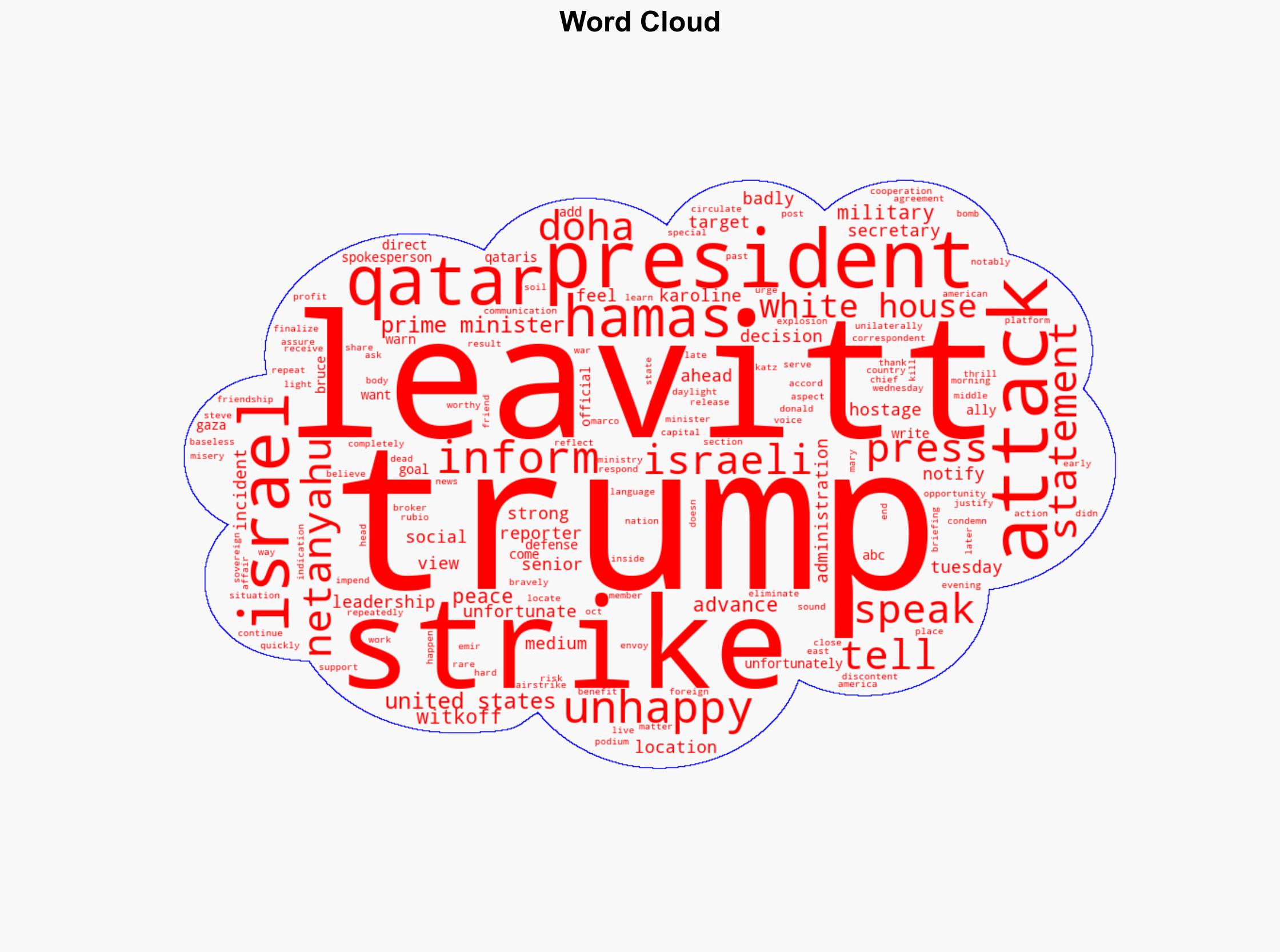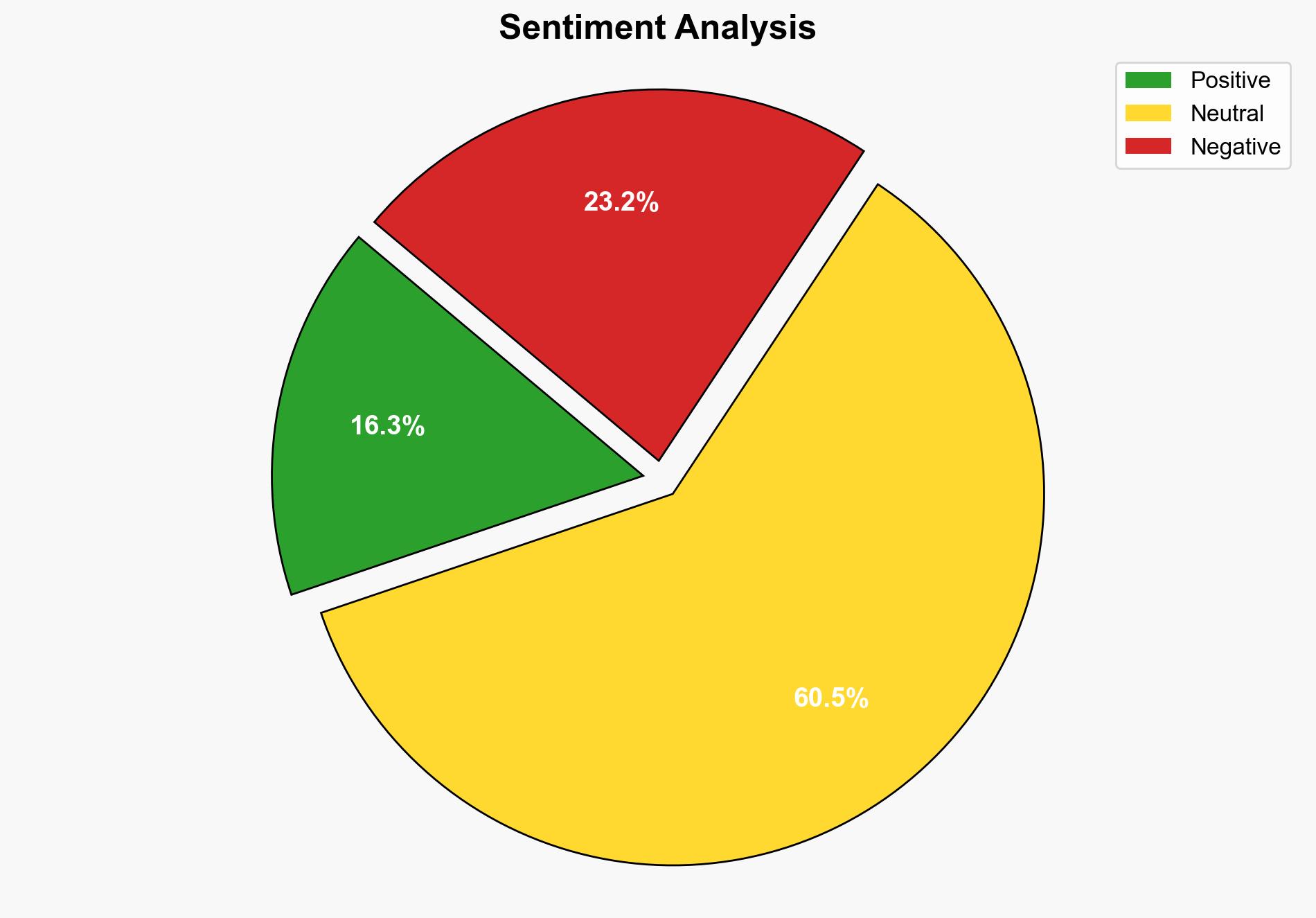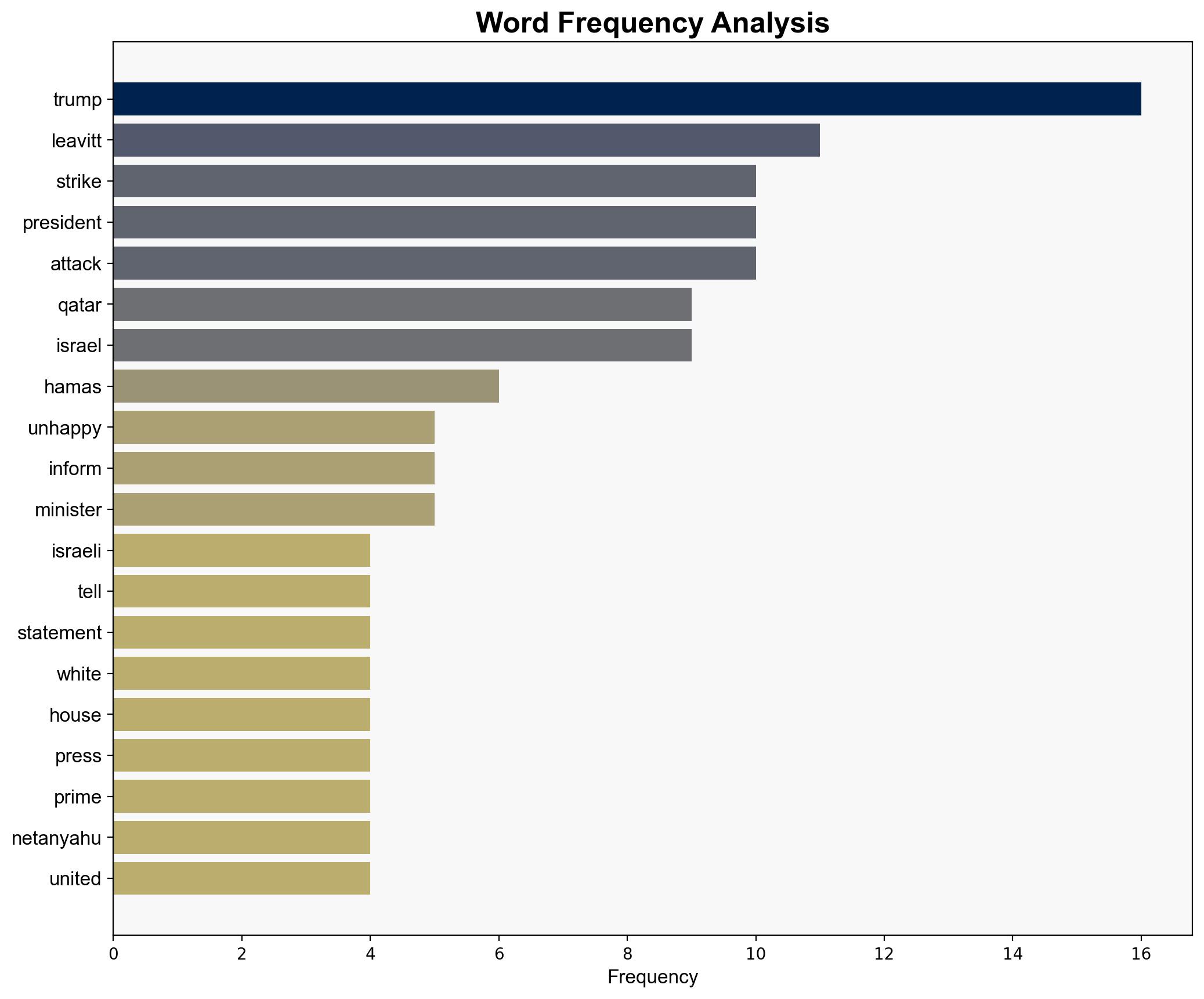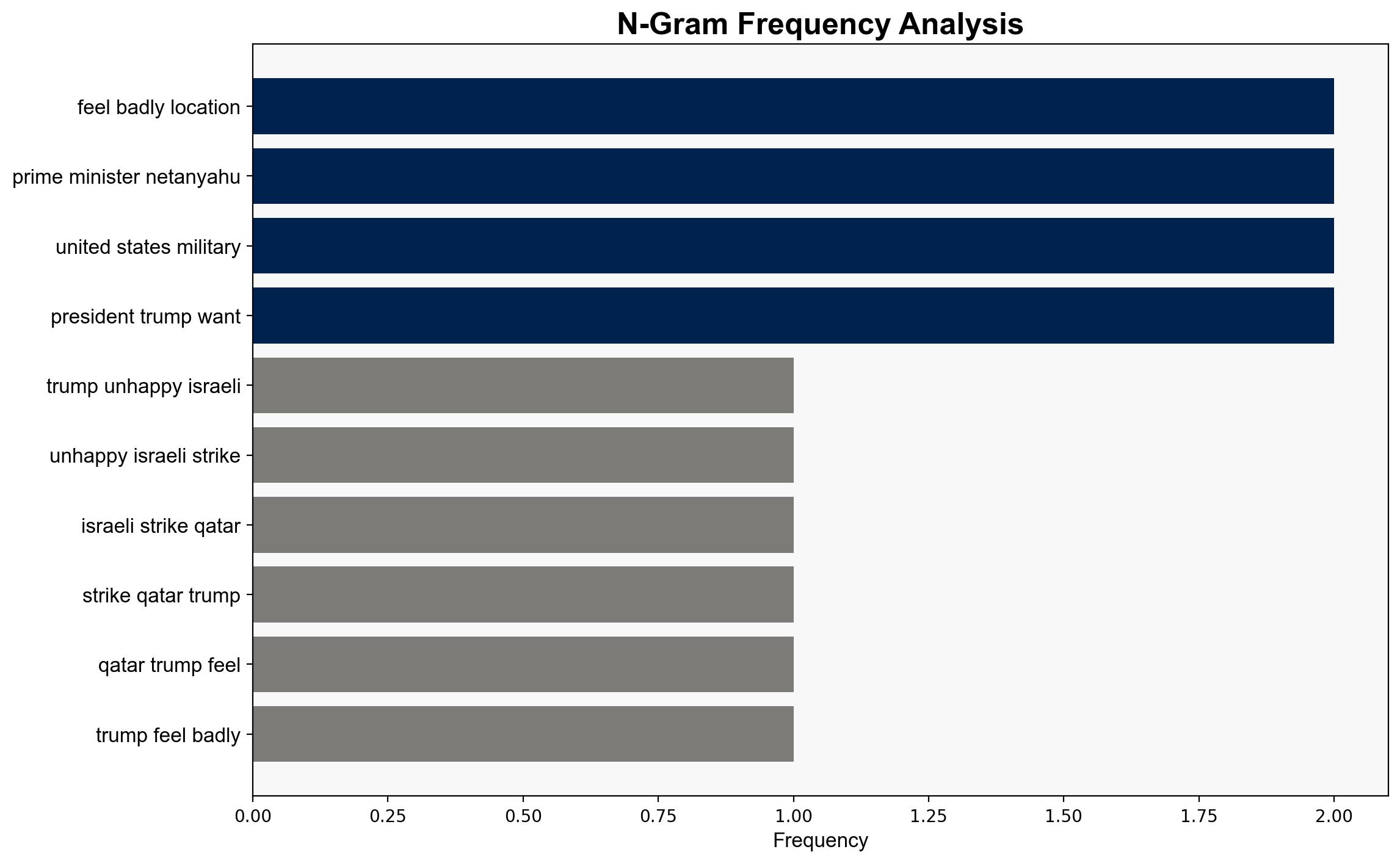White House says Israel’s strike in Doha ‘does not advance Israel or America’s goals’ – ABC News
Published on: 2025-09-09
Intelligence Report: White House says Israel’s strike in Doha ‘does not advance Israel or America’s goals’ – ABC News
1. BLUF (Bottom Line Up Front)
The most supported hypothesis is that Israel conducted the strike in Doha without prior comprehensive coordination with the United States, leading to diplomatic tensions. Confidence level: Moderate. Recommended action: Engage in diplomatic discussions to reaffirm communication protocols and prevent similar incidents.
2. Competing Hypotheses
Hypothesis 1: Israel executed the strike without prior notification to the United States, reflecting a unilateral decision driven by immediate security concerns.
Hypothesis 2: The United States was informed but failed to effectively communicate the information due to internal miscommunication or strategic ambiguity.
Using the Analysis of Competing Hypotheses (ACH) 2.0, Hypothesis 1 is better supported by the evidence, including statements from U.S. officials expressing surprise and the lack of prior notification to the U.S. military.
3. Key Assumptions and Red Flags
Assumptions include the belief that Israel typically coordinates with the U.S. on significant military actions. A red flag is the conflicting accounts of whether the U.S. was informed, suggesting potential communication breakdowns or strategic deception. The absence of direct confirmation from Israeli officials about U.S. notification is a critical gap.
4. Implications and Strategic Risks
The incident could strain U.S.-Israel relations, impacting future military cooperation and diplomatic negotiations. There is a risk of escalating tensions in the region, particularly with Qatar, a key U.S. ally. This could lead to broader geopolitical instability and complicate counter-terrorism efforts.
5. Recommendations and Outlook
- Engage in high-level diplomatic talks with Israel to clarify communication protocols and prevent future unilateral actions.
- Strengthen intelligence-sharing mechanisms with Qatar to reassure them of U.S. commitment to their sovereignty.
- Scenario Projections:
- Best Case: Improved U.S.-Israel communication leads to enhanced regional stability.
- Worst Case: Continued unilateral actions by Israel result in diplomatic fallout and regional conflict.
- Most Likely: Temporary diplomatic tensions with eventual resolution through negotiation.
6. Key Individuals and Entities
Donald Trump, Karoline Leavitt, Steve Witkoff, Marco Rubio, Benjamin Netanyahu, Israel Katz
7. Thematic Tags
national security threats, counter-terrorism, regional focus, diplomatic relations





